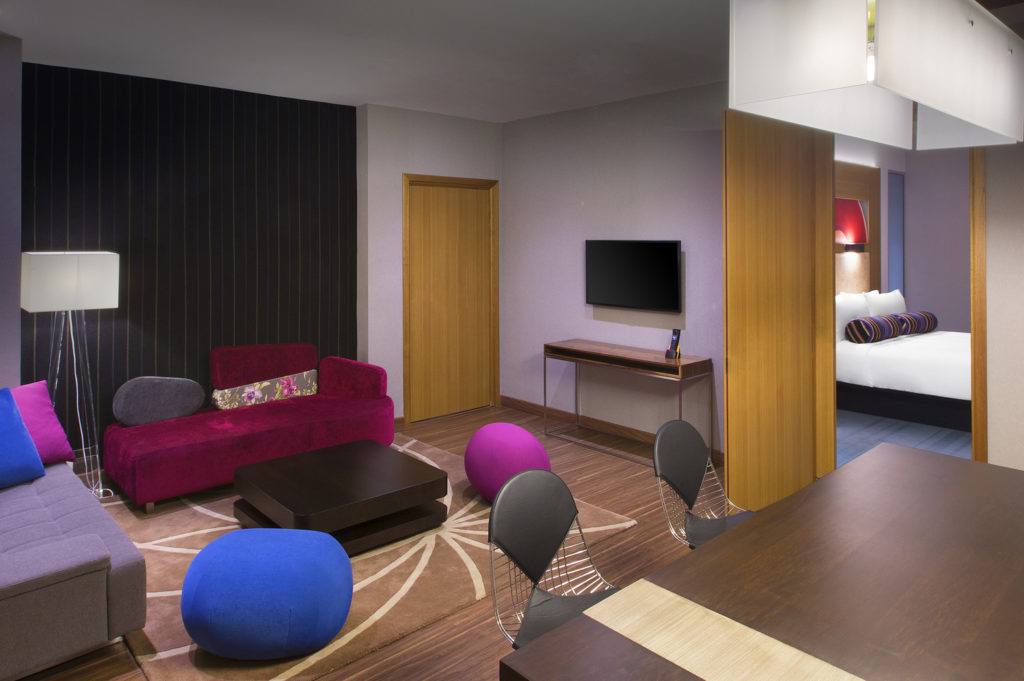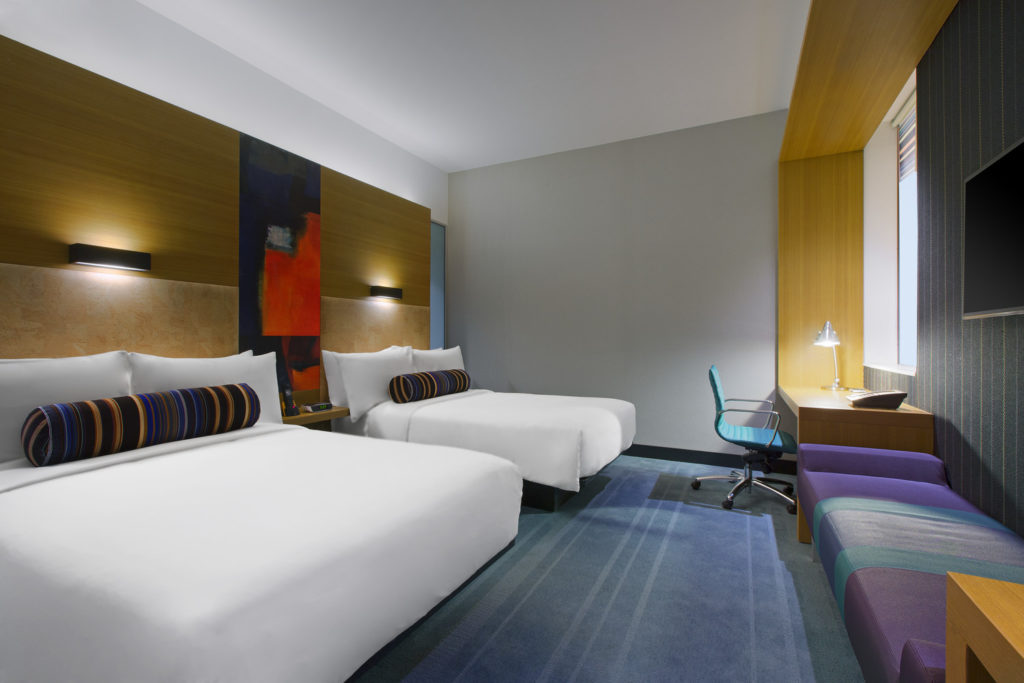As a housekeeping function that is of paramount importance, laundry solutions in hotels are an add-on that is of extreme importance. After all, guests would like their clothes to be as clean as possible in as less time as possible. The fine balance of delivering quality and on time is something that the housekeeping department needs to maintain. If you think about it laundry is everywhere in a hotel – from bed sheets, tablecloths, staff uniforms, guest clothes and more. Also laundry volumes in hotels are huge and needs much care in the upkeep of linen care as well.
The Specifics
Since the laundry function is a huge most hotels have a dedicated space for setting up of laundry. Keeping in mind the scale, the logistics are also set in place. “A detailed plan identifying the washing and drying capacity of the machineries to be installed and their quantity and quality (brand and specifications) which depends on the number of rooms the laundry is supposed to operate is set. Steam boilers for generation of steam for machineries, preferably a water softening plant, electricity and requisite pipelines for the same, staff with various levels of skills and maintenance knowledge personnel and chemicals and supplies for washing and dry cleaning are in place,” opined Shubhashish Halder, Laundry Manager, The Leela Mumbai. Water is the most important and basic element in laundry operations, water with the right parameters in terms of TDS, PH and PPM; reduce the use of chemicals which eventually increases the life of the linen. All the water which goes in our machines is treated and checked on a regular basis as per the set parameters.
Managing Right
A lot of planning goes into setting up of a laundry starting from steam boilers and the fuel which is used for generation of steam. The energy cost varies with the type of fuel being used for generation of steam. “We follow a stringent selection process which involves mapping the productivity, maintenance and the specifications such as power consumption in KW, RPM, G factor, inbuilt electric boilers etc. before buying the machineries. Then comes the chemical/supplies cost which although is a small amount when compared to HLP (heating, lighting and power) also plays an important role in keeping the operational costs at check,” said Halder. For a laundry operation to be effective and efficient, it’s important to ensure the machines are maintained well and have periodic servicing schedules, good quality chemicals are used and the machines are used to their optimum load. There should be proper wash schedules and supervision to ensure maximum turnaround of linen/uniforms with less wastage of time, energy and manpower. “We use top notch, quality assured chemicals that minimize the use of water and electricity. We also run machines on a fixed time of the day, this cuts on operational costs to a large extent. In fact, on weekends we only operate on limited machines,” explained Faiz Alam Ansari, Complex General Manager, Sheraton Grand Bengaluru Whitefield Hotel & Convention Center and Aloft Bengaluru Cessna Business Park. “Always load your washing machine optimally as an under loaded washing machine does not mean that it will consume less electricity. The amount of electricity used is same even if the washer is not fully loaded or under loaded. Use the right type of cleaning agent for washing clothes. The type of agent used is different for front load and top load. An incorrect choice can lead to multiple wash cycles to wash clothes properly leading to wastage of water and electricity,” added Monika Yadav, House Keeping Manager, Courtyard by Marriott and Fairfield by Marriott, Outer Ring Road, Bengaluru.
ROI Matters
In hotel laundry’s profit and loss statements, a lot of factors are ignored currently and laundry is considered a cost centric department rather than one that generates revenue. ROI is calculated based on the revenue earned plus the savings on energy and manpower costs. Rohit Jhingan, Director- Sales & Marketing, The Pllazio Hotel, Gurgaon explained, “laundry generally earn their revenues through the guest in house, this in only a minor part of the operations and for a operations our size does not contribute much to the bottom lines, the revenue generated through them will help in covering only the basic costs but ROI in terms of laundry should also be looked at in terms of cot saved vis-à-vis if it was outsourced, the savings in terms of the increased life of the linen and uniform.”
Being Efficient
Removing spots and stains is not an easy task and hence hoteliers need to make the right investments and ensure systems are in place. “We have dedicated wash programs with certain specifications (wash time, temperature and chemicals) to treat stained linen which comes to 7-8% after washing it in a regular wash process. Similarly for coloured laundry, we have dedicated wash programs so that the garments get clean without hampering the colour or texture of the garments. These methods are quite cost effective as the chemicals costs are INR 2.3/kg of load washed,” said Halder. Payal Joshi, Housekeeping Manager, Park Hyatt Hyderabad explained, “we have a separate station specially for sorting out and reviving stained linen. This station offers chemicals for treating different kinds of stains. Coloured laundry is processed separately, at lower steam levels and the process is programmed based on the level of soiling.” Stained linen is a challenge which every laundry faces daily in its operations, the practice of spotting is followed to deal with stained linens, spotting is just not stain removal but a science in itself and should be looked in that way, stained items are sorted and kept separately for spotting, a dedicated team and time is allotted for the process of spotting. “Spotting utilizes different tools like boards, steam guns, different reagents etc. After successful removal of stains the linen is sent for re-washing, a record is maintained for the amount of rewash happening in a month. The fabrics used in a Hotel for uniforms, napkins etc. must be purchased keeping in view the end use, stain removal properties and longevity. Apart from the regular process of breaking, sudding, emulsification, for coloured linen we use Oxygen bleach which are less likely to cause colour loss than chlorine bleaches. Oxygen bleach does not leave any residue on the fabric since the decomposition product of the bleach is water and oxygen,” said Jhingan.
Product Mix
Naturally, hoteliers use a variety of products and solutions to avoid fibre damage and help fabrics last longer so that they last longer. Very often this begins with a stringent selection process of fabric and running them through various kinds of internal tests. “We use chemical solutions from Johnson Diversey (parent company Sealed Air) wherein the wash programs are custom made to suit all type of fabrics. We ensure to use specific wash program dedicated for a certain type of fabric (depending upon size, colour, texture) which helps us to clean the fabric as well as to protect the fabric from damage,” said Halder.
Going Green
As laundry uses the scare resource of water, it is important that hoteliers invest in eco-friendly solutions to reduce energy and water usage. “We use water based chemicals only and these are from “Eco lab” all the chemicals are eco-friendly they do not have any harmful chemical which may damage the fabric. We use normal process of laundry wherein the chemical is water based or Perchloroethylene for dry cleaning fabrics,” said Yadav. The chemicals solutions used by Leela are from Clax Xcellence range from Diversy India which enables the wash program to use less rinsing cycles thus saving water and energy costs. They are in the process of working out the benefits of Clax Advanced System which works at a lower temperature, uses less water in every wash process and drains out easily recyclable water which ultimately leads to lots of HLP and water cost savings. Likewise water discharged by washers from the laundry is sent to the Sewage Treatment Plant (STP) where it gets treated and is usually used for watering the landscaped areas. Joshi avered, “for fabrics to last longer and fibres from getting damaged, we ensure the temperatures of water when washing is as per the required standards, the ‘ph level’ of water is maintained and the dosage of solutions/chemicals is as specified for the fabric.” Sudhir Mishra, Laundry Manager, The Leela Palace Bangalore explained, “we have replaced our complete conventional lamps into LED, which gave phenomenal savings in terms of electricity consumption. Heat installed for hot water generation before we burn the diesel for same and now we have reduced our diesel consumption 500 liters/day. For water we have installed for aerator on all taps which reduced the litre per minute in each tab given from 20 LPM to 8 LPM. We have a daily tracking system to maintain HLP Cost.
Supplier Considerations
Since laundry is a significant activity, hoteliers have to ensure they choose suppliers wisely, after a thorough research on their offerings, specifications and authenticity. Ansari explained, “the main criteria for supplier selection is quality assurance with cost effectiveness. We look for suppliers with high quality and timely deliverance of products with prompt responses.” Another important aspect is the quality of the product. “This includes the eco-friendly nature of the solutions, the wash quality it gives, the amount of water and electricity it consumes during washing, effect on the machines, effect on the strength of the fabric/linen being washed, cost effectiveness and last but not the least the availability,” said Joshi. Laundry is certainly a complicated business, so the next time you put your clothes in the laundry bag in your hotel room, remember what goes into it!
This story appeared in the October 2017 issue of Hotelier India magazine here. PDF can be downloaded here: Laundry Solutions


And try to keep laundry expense cheaper than cost of new cloths… 🙂
Ha ha indeed that is correct Shrinidhi!